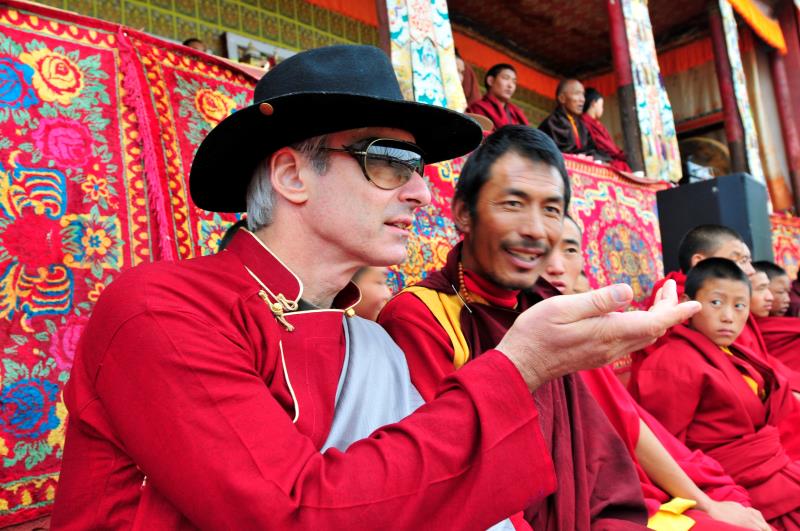Fighting poverty with firm vision and action


Concrete benefits
Those aspects have been integral in helping China lift, according to World Bank figures, 850 million people out of poverty since its reform and opening-up began in the late 1970s, Brahm said. The scale of those achievements has not been sufficiently acknowledged in the West, he said.
"The Chinese economy is managed with the intention to build and sustain a real economy. It's about real people and real things."
To that effect, Brahm's poverty alleviation work in rural communities throughout China has shown the importance of real benefits built on basic communications infrastructure, such as road networks, and education.
"That's a very big part of the success of China's elimination of poverty, because from the very beginning of initiating reforms, everything was about infrastructure," he said. "If you have a road, if you have rail, if you can create connectivity, you can create an economy.
"Aid is an emergency solution. If you want to eliminate poverty you have to create sustainability. You have to create situations in which people in their own community have the capacity to actually run their own businesses. They have products that they can sell. They have things that they can live on, even if that economy is within their own communities. But that economy has to be able to exist. And in many cases that depends on communications infrastructure."
The roads connect rural, needy areas to basic water and electricity supplies, significantly improving access to healthcare and education, Brahm said.
"We've opened up a number of medical clinics, and in many areas people don't have access to basic medical facilities because they're living in very isolated regions that are very inaccessible. When you're getting out into the countryside, when you're talking about driving three hours on small roads and further and you're in communities, if someone's sick, they don't have that accessibility.
"I've seen projects where nomadic kids are doing online learning. All they need to do is have a server there. They can have their Wi-Fi, they can be in contact. I've seen these types of systems in rural areas, even creating light, energy, enormous amounts of solar systems that have been provided to nomadic regions. That means that at night people have a light bulb in their tents and they can read. These are transformational."
Building the foundations of economic growth requires the tapping of new technologies away from fossil fuels toward green sustainability that also draw on the traditional wisdom of ethnic communities to help them exist in harmony with nature, Brahm said.
- China confronts senior cancer surge with early detection, TCM
- Expert debunks Lai's 'four elements' argument for Taiwan's so-called statehood
- Tech innovations fuel China's desertification fight
- 4 giant pandas return to China from Japan
- China allocates another 100m yuan to aid flood-hit Guizhou
- HK entrepreneur Ho Tsu-kwok dies at 77





































